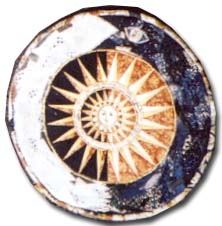tsunami
When the tsunami hit, I was chatting online and was told that an earthquake had occurred in Indonesia. I checked an earthquake monitoring site, just to see where it was, and to be honest I didn't even look at the magnitude or the exact location. All I wanted to know was approximately where the epicenter was. I went home later, and switched on the TV. Here in Sydney, unless you have cable TV, you get only 5 channels, and my favorite one is the SBS. This is mostly because they screen all kinds of wacky foreign language films, which I can watch till midnight by reading the subtitles to avoid the ranting of my psychotic housemate. It's my one joy in life right now :). So I was blown away when instead of the usual SBS shows, they were showing BBC's round the clock coverage of the tsunami. I then realized that it was something massive, and to put it in perspective- the other channels had an almost casual mention of the disaster. It seemed that even they, like everybody, did not realize the scale of this disaster. The next few days, they remedied this and gave a sizable account of the tsunami, but always stressing the fate of Australians. It was almost amusing to see the anchors state in a grim voice that upto 10 Australians were dead, and in the same breath, reporting that 70,000 were killed overall.
However, as I kept browsing the web, it became apparent that this was easily one of the greatest disasters ever. Metafilter had a post about the tsunami and so did BoingBoing. BoingBoing in particular had a fantastic series (still ongoing) of links to bloggers and info. I think it was from here that I came across the SEA-EAT blog, which turned very rapidly into one of the main clearing houses of information regarding the tsunami. And it was easy to see that the blog itself was getting swamped by information and manageability problems. For one, there were many contributors and the blogging convention of sequential reverse chronological posts made it very difficult to manage the information, in contrast to say the Wikipedia which had a fantastic account of the tsunami. Dina Mehta, one of the founders of SEA-EAT, and who also blogs at World Changing, rued that they should have opted for a Wiki format instead of a blog, and despite the fact that they started multiple blogs to ease the info crunch, the wiki was the way to go. And so they did.
I have had an ambivalent attitude towards wikis from the time i heard about it. A completely user-collaborated entity where anyone can add or modify anything seemed a bit too anarchic even for my tastes, but the quality of the wikipedia is allaying any fears I might have had. And I got to know the use of a wiki first hand when I added a link to the tsunami help wiki -a link that might not have been added otherwise.
And this brings me to the essential difference between a wiki and the blogging world. Credit is implicit in the blogging world. You take a link from somewhere, it's usually understood that you credit the source. The person, even, whereas in a wiki, the person is usually anonymous. While this might lead to the fear that the anonymity might lead to mischief, I think that it's because of this anonymity that the wiki phenomenon attracts only those who sincerely wish to disseminate information.




<< Home